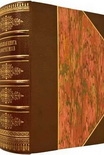The Magic Circle by Katherine Neville (13 inch ebook reader .TXT) 📗

- Author: Katherine Neville
Book online «The Magic Circle by Katherine Neville (13 inch ebook reader .TXT) 📗». Author Katherine Neville
“Alexander’s mother, Olympias,” Dacian finished, “told him he was the seed of the serpent power, the cosmic force. The ambition she’d nurtured in him as a child grew into an unquenchable thirst for world dominion. To this end, he built a sacred city at each ‘acupuncture point’ on the earth’s power grid. Alexander thought that to pin these points along the spine of the earth, like driving the axis of a nail into a tree, would enable him to harness the ‘dragon forces’ of earth—and that one who possessed the sacred stone of the new age and planted it precisely at the center of the grid would bring about the last revolution of the wheel of the aeon, would have it under his control and dominion, with the rest of the earth. This was so important, Alexander stopped his campaigns to survey each locale before breaking ground, and he insisted on naming each city himself—seventy in all—before he died.”
“Seventy cities?” said Wolfgang, looking up from the book he was stuffing.
“An interesting number, is it not?” Dacian agreed. “With the earlier seven cities of Solomon, it makes seventy-seven points in the grid, a profoundly magical number.”
I hadn’t missed the parallel between the seventy-seven cities of Alexander and Solomon and the Group of 77 nonaligned nations I’d spent the morning being briefed on. As I passed Wolfgang the book I’d just stuffed, the door swung inward on its hinges and a librarian popped his head around the side and nodded to indicate it was time to close. Dacian rolled his leather map up and replaced it in his bag as Wolfgang neatly stacked the last pile of books and headed with them toward the door.
“Even if there were some kind of grid that harnessed such mysterious energies,” I asked Dacian, “what would be the value of controlling it?”
“Remember, Solomon was regarded as lord of the four quarters—not only of earth, but of the four elements, too,” he said. “Thus, he possessed the powers of an immortal. And Alexander, in his short span, became the first Western man to be regarded even before his death as a living god.”
“You don’t believe there are gods who come to earth in human form?” I said. “I love these old myths—but this is the end of the twentieth century.”
“Precisely the moment they’re expected to arrive,” said Dacian.
We went out into the darkened street and the library door closed behind us. Dacian looked rather drained as he stood in the golden light of the first streetlamp that had just switched on above our heads—but his face was still so handsome.
“I must leave you in a moment; I’m very tired,” he said. “But I shall see you again—at least, if the gods we spoke of are willing. And though I’ve just scratched the surface of what you need to know, at least it has been scratched so you can peer through the glass a bit. I shouldn’t be concerned about those manuscripts. They’re of little use by themselves. It’s not enough to read; one must also understand. This ability, as I said, calls for a questing mind—and for something more.”
“Something more? Like asking the right questions,” I said. “But earlier, at the Hofburg, you told us you were the one person who could explain why everyone wants these manuscripts, and the hallows too—that you alone could answer the question of what’s so dangerous about them. So the question is, why haven’t you?”
“I said only one person could answer the question—not that I was the one,” Dacian clarified. “Perhaps you’ll recall my saying that Sanskrit was a key to this mystery? Or that the ancient fire temple built on the site of Solomon’s throne in Afghanistan was also of importance? These are both related to that quality I’ve called ‘something more.’ It’s best described by a Sanskrit word, salubha, meaning ‘the way of the moth or grasshopper’—to fly into fire, to rush without thought into danger as the salamander does. To dance upstream like the salmon. To possess the powers of salt.”
“Salt?” I said.
“Salt, the most valued commodity of the ancient world,” said Dacian. “The Romans paid their troops in it: hence today’s word ‘salary.’ The oldest Celtic settlement in Austria, one of the earliest and richest in Europe, was Hallstatt, high in the Salzkammergut, ‘salt chamber country’—quite close to where our friend Lucky was born and where he lived in later life. Its name reveals its source of wealth: like the German Salz and old German Halle, hal was the Celtic name for salt.”
With a chill I recalled Lucky’s words to Dacian, as recounted by Laf: that on the river, and in the Salzkammergut, would be found the message from the ancient peoples, written in the runes.… But what did it take to uncover that message? I knew the salt lakes and saline springs high in the Austrian Alps, and the mysterious, crystalline underground salt mines, like Merlin’s cave—like those seventy-seven fabled cities.
“Are you saying that when Hitler built his house in the Obersalzburg he was trying to tap into some force, like the hidden cities of Alexander and King Solomon?” I asked. “But what was it?”
“All these things,” said Dacian, “Solomon, the salamander, the salmon, even the town of Salzburg, have one thing in common. Whether sal or Salz or sau or sault—it comes down to ‘saltation,’ a word that means to leap, to jump, to dance—”
“I’m afraid that calls for a quantum leap on my part,” I said.
“That’s the secret ingredient I asked for: sal sapiente, wise salt, the Salt of Wisdom,” said Dacian. “Sprinkle a little, and it gives you those leaps of intuition like the ones





Comments (0)